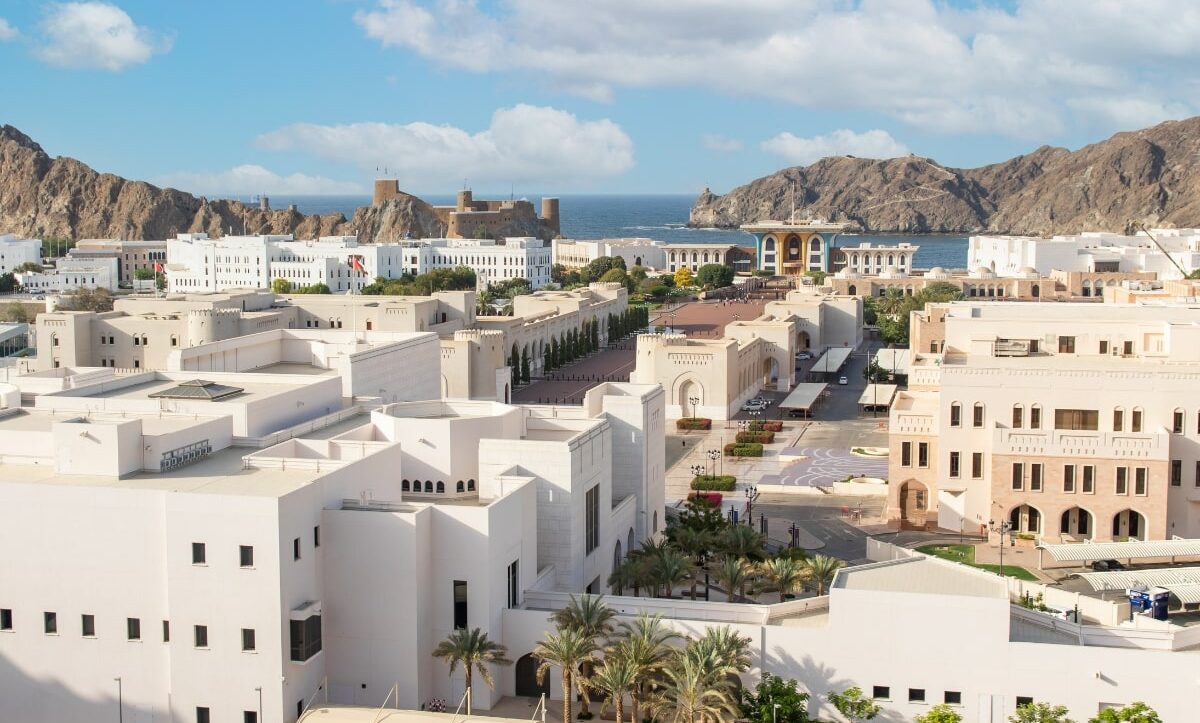Oman is planning to develop a smart city that can accommodate 100,000 residents. In a plan exclusively shared by Skidmore, Owings & Merrill (SOM) with CNN, the city will be located on an undeveloped site in Al-Seeb, a coastal area to the northwest of Muscat. SOM is a US architecture firm, with Burj Khalifa as one of their notable works.
Oman’s Ministry of Housing and Urban Planning describes the development as Muscat’s “urban expansion.” A mass transit system is set to connect the new city to the Omani capital.
An innovative city
SOM envisions Sultan Haitham City to be a “vibrant public space, high-quality and affordable housing and smart urban mobility.” In terms of land area, it will be about the same size as Beverly Hills in the US. However, its capacity of 100,000 persons will be triple the population of the upscale California city.
It will span 14.8 sqm and will be home to 20,000 residential units, alongside essential establishments such as health facilities, learning institutions, and mosques.
Bernhard Rettig, one of SOM’s senior associate principals, revealed that the development will also have a traffic management system that can offer real-time data and a “smart infrastructure” that can monitor environmental factors.
In digital parlance, “smart city” generally refers to a development that utilizes sensors, cameras, and internet-connected devices to gather data to enhance urban life. Despite privacy concerns, urban planners recognize that this data-driven approach is essential for efficient public services.
A step toward sustainability
Sultan Haitham City is a key highlight of the state-led initiative, Oman Vision 2040. One goal of the comprehensive multisector plan is to increase the use of renewable energy and reduce dependency on oil.
By 2030, the country aims to produce 30% of its electricity from green sources.
Read: Yiti: A sustainable dream off of the Gulf of Oman
In line with this vision, SOM shared that they want to keep the development’s “ecological footprint” to a minimum, highlighting waste-to-energy plants, solar energy facilities, and electric vehicle infrastructure as integral components of their master plan.
Additionally, the architecture firm said that the upcoming district will take into account Muscat’s weather conditions. The city experiences high humidity and extreme heat that exceeds 43 degrees Celsius. SOM will construct roads and buildings in a way that maximizes shade and promotes natural ventilation.
Another landmark feature is a park with plazas and a network of open spaces. It will be strategically located along a 7.5-kilometer-long stretch of dry river and will play a vital role in addressing the coastal region’s susceptibility to periodic flooding.
The project will commence in 2024, and it is expected to be completed in four phases by 2045. The construction of six of 19 neighborhoods is also included in this specific timeline.

Middle East developments
According to White and Case, “countries in the Middle East have been remarkably proactive in developing smart cities, with a tendency to build them from the ground up rather than incorporating technology into existing environments.”
In particular, Saudi Arabia stands out for its ambitious smart city projects. The are currently four smart cities under development, including NEOM, Amaala, Qiddiya and the Red Sea Project. The largest, the US$500 bn NEOM project, will incorporate a zero-carbon hyper-connected city called “The Line.” It is envisioned to be a carbon positive city and will be powered by clean energy, AI, and machine learning.
Meanwhile, in the UAE, Masdar City in Abu Dhabi relies on renewable energy sources and utilizes sustainable materials. The development incorporates a number of smart solutions that reduce energy and water consumption. It offers an integrated smart network of electric or zero-carbon transportation options. The city is also being used to run pilot projects to test new renewable energy innovations developed at the Masdar Institute of Science and Technology.
For more sustainability news, click here.








